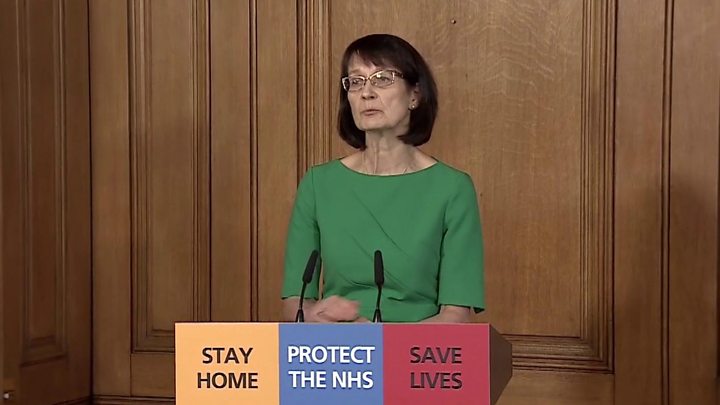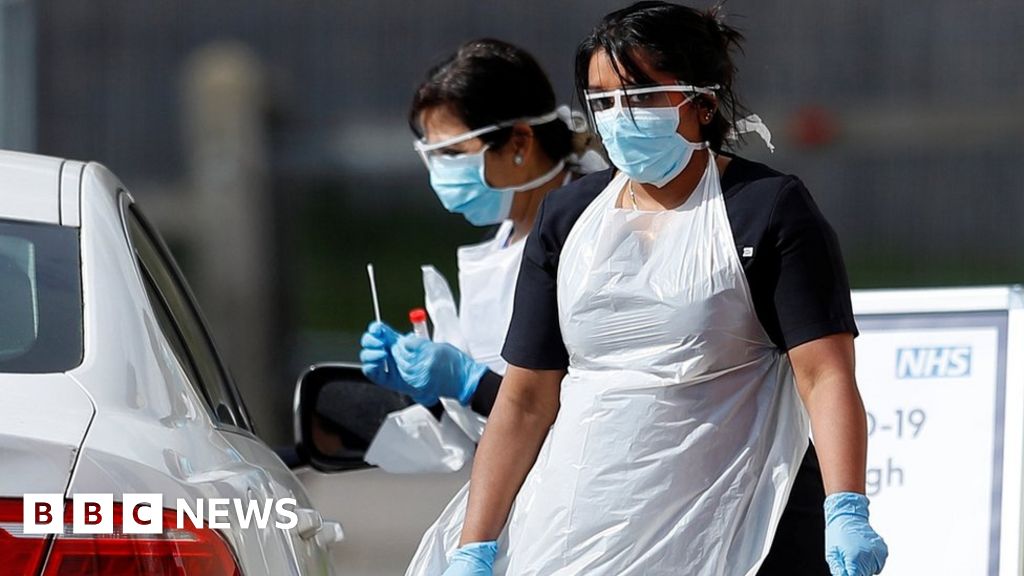
A near-deserted Regent Street in London, England, on March 26, 2020. According to the latest daily figures a total of 578 people have so far died across the UK after testing positive for the covid-19 coronavirus.
David Cliff | NurPhoto | Getty Images
The lockdown in the U.K. to stop the coronavirus outbreak could last for up to six months, government officials warned Sunday, as the U.S. and other European nations also announced prolonged restrictions on public life.
Speaking at the U.K.'s daily press conference on the latest coronavirus news, the U.K.'s deputy chief medical officer said a lockdown could last, in some form, for months.
"Over time, probably over the next six months, we will have a three week review," Jenny Harries said, "We will see where we're going."
"We need to keep that lid on and then gradually we will be able to hopefully adjust some of the social-distancing measures and gradually get us all back to normal. So I think three weeks for review, two or three months to see whether we've really squashed it. But about three to six months ideally, and lots of uncertainty in that, but then to see at which point we can actually get back to normal."
Harries said that if the measures were extended then it's not to say that the U.K. "would be in complete lockdown for six months," but she added that it was also plausible that the measures could be extended beyond that six-month mark.
The U.K. is entering its second week of national lockdown, while other European countries have endured longer restrictions amid rising death tolls. Italy and Spain are the worst hit countries; in Italy, the total number of confirmed cases is nearing 100,000 (the death toll as of Sunday was 10,779 people) while in Spain there are just over 80,000 confirmed cases and 6,803 deaths.
The number of confirmed cases in the U.K. rose to 19,784 on Sunday, with the death toll standing at 1,228, as of Saturday.
The U.K. is thought to be several weeks behind Italy in terms of infections, although it is hoping that lockdown measures can stop the spread of the outbreak and limit a hit on the country's overstretched health service. Brits are currently advised not to leave their homes unless they need to buy food, or for exercise once a day.
It was confirmed last week that Prime Minister Boris Johnson and Health Secretary Matt Hancock have both contracted the virus; Johnson insisted he would remain in charge of coordinating government while self-isolating at his official residence in Downing Street. The country's chief medical officer also said he was experiencing symptoms of the virus last week.
On Sunday, President Donald Trump extended the national social distancing guidelines to April 30, rowing back from previous remarks that he wanted the country to reopen for business by Easter.
"Nothing would be worse than declaring victory before the victory has been won," Trump said at an evening press briefing after suggesting that the coronavirus death rate would likely peak in two weeks.
Germany, with over 62,000 confirmed cases, has said it won't lift restrictions on public life until April 20 and Italy, which was due to review its own lockdown measures on April 3, has said these could be extended until July 31. Spain extended its state of emergency, and accompanying restrictions, to April 11.
The U.K. government is to send a letter to Britain's 30 million households, warning them the situation around coronavirus will get worse before it improves. It's still to be seen whether restrictive measures imposed on the country are effective in stalling the spread of the disease.
"We actually anticipate our numbers will get worse over the next week, possibly two, and then we are looking to see whether we have managed to push that curve down and we start to see a decline," Harries noted Sunday.
The government, and health service, could get a boost from an unlikely source in the coming weeks after Mercedes' Formula One (F1) team worked with clinicians and engineers from London's University College London, and its next door hospital, to fast-track the building of a breathing aid that delivers oxygen to the lungs without needing a ventilator, the BBC reported. The device can help keep people with the coronavirus from having to go into intensive care wards, thus easing pressure on the health service.
https://news.google.com/__i/rss/rd/articles/CBMiWmh0dHBzOi8vd3d3LmNuYmMuY29tLzIwMjAvMDMvMzAvY29yb25hdmlydXMtdWstYW5kLXVzLWxvY2tkb3duLWNvdWxkLWdvLW9uLWZvci1tb250aHMuaHRtbNIBXmh0dHBzOi8vd3d3LmNuYmMuY29tL2FtcC8yMDIwLzAzLzMwL2Nvcm9uYXZpcnVzLXVrLWFuZC11cy1sb2NrZG93bi1jb3VsZC1nby1vbi1mb3ItbW9udGhzLmh0bWw?oc=5
2020-03-30 08:45:40Z
CAIiECAWsSPFXTe2O4kOMNvc72sqGQgEKhAIACoHCAow2Nb3CjDivdcCMJ_d7gU



